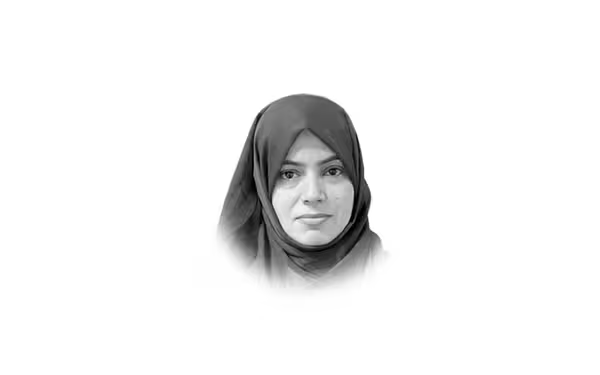Saturday, November 16, 2024 07:41 PM
Empowering Women Through Literacy in Pakistan
- Only 27% of females attend school in Pakistan.
- Educated women contribute to economic growth and social development.
- Women's literacy is essential for achieving gender equality.
 Image Credits: tribune.com.pk
Image Credits: tribune.com.pkOnly 27% of females in Pakistan attend school, highlighting the urgent need for women's literacy to foster economic growth and gender equality.
In today's world, education is a fundamental right that should be accessible to everyone, regardless of gender. However, in Pakistan, the statistics reveal a troubling reality: only 27% of females attend school. This alarming figure, reported by Unicef, highlights a significant gap in educational opportunities for women and girls. Education is not just about learning to read and write; it is a powerful tool that can transform lives and uplift entire communities.
When women receive an education, the benefits extend far beyond the individual. Educated women are more likely to contribute to their families' income, make informed decisions about health and nutrition, and invest in their children's education. This creates a ripple effect that fosters economic growth and social development. In contrast, when girls are denied education, the cycle of poverty continues, and societies miss out on the potential contributions of half their population.
Moreover, educated women are often more empowered to participate in civic activities and leadership roles. They can advocate for their rights and the rights of others, leading to more equitable and just societies. The importance of women's literacy cannot be overstated; it is a cornerstone for sustainable development and a key factor in achieving gender equality.
As we reflect on these statistics, it is crucial to recognize that the responsibility to change this narrative lies with all of us. Governments, communities, and individuals must work together to create an environment where girls can thrive in their education. This includes providing safe schools, qualified teachers, and financial support for families to encourage them to send their daughters to school.
The path to progress is paved with the education of women. By prioritizing women's literacy, we are not only investing in their future but also in the future of our society as a whole. It is time to take action and ensure that every girl has the opportunity to learn, grow, and contribute to her community. Together, we can build a brighter future for all.













